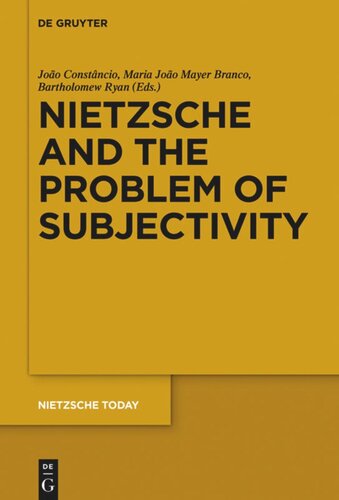

Most ebook files are in PDF format, so you can easily read them using various software such as Foxit Reader or directly on the Google Chrome browser.
Some ebook files are released by publishers in other formats such as .awz, .mobi, .epub, .fb2, etc. You may need to install specific software to read these formats on mobile/PC, such as Calibre.
Please read the tutorial at this link: https://ebookbell.com/faq
We offer FREE conversion to the popular formats you request; however, this may take some time. Therefore, right after payment, please email us, and we will try to provide the service as quickly as possible.
For some exceptional file formats or broken links (if any), please refrain from opening any disputes. Instead, email us first, and we will try to assist within a maximum of 6 hours.
EbookBell Team

4.1
80 reviewsNietzsche's critique of the modern subject is often presented as a radical break with modern philosophy and associated with the so-called ‘death of the subject’ in 20th century philosophy. But Nietzsche claimed to be a ‘psychologist’ who was trying to open up the path for ‘new versions and sophistications of the soul hypothesis.’ Although there is no doubt that Nietzsche gave expression to a fundamental crisis of the modern conception of subjectivity (both from a theoretical and from a practical-existential perspective), it is open to debate whether he wanted to abandon the very idea of subjectivity or only to pose the problem of subjectivity in new terms.
The volume includes 26 articles by top Nietzsche scholars. The chapters in Part I, “Tradition and Context”, deal with the relationship between Nietzsche's views on subjectivity and modern philosophy, as well as with the late 19th century context in which his thought emerged; Part II, “The Crisis of the Subject”, examines the impact of Nietzsche's critique of the subject on 20th century philosophy, from Freud to Heidegger to Dennett, but also in such authors as Deleuze, Foucault, Derrida, or Luhmann; Part III, “Current Debates - From Embodiment and Consciousness to Agency”, shows that the way in which Nietzsche engaged with such themes as the self, agency, consciousness, embodiment and self-knowledge makes his thought highly relevant for philosophy today, especially for philosophy of mind and ethics.